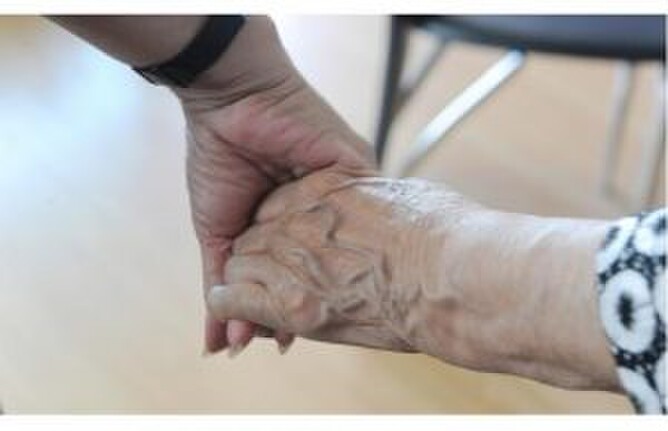For the last twenty years, we have seem commentaries in the media about 'setting up a family trust to avoid paying residential care subsidies.'
In reality, the rules of Government departments change on a regular basis and there is no certainty that creating a family trust will mean that you will be eligible for the residential care subsidy if you need to go into residential care. Of course, there is the other range of discussions about whether it is moral and ethical to 'hide' your money when you have enough to pay for your residential care (but I wont' go there.)
Lifetime Retirement Income have put together a very useful summary and reference that I thought it would be could to share with you about this subsidy.
PLEASE NOTE - this information is as at June 2017 - the rules can and do change on a regular basis.
The Residential Care Subsidy – what you need to know
When you retire, you need to know how you’re going to pay for any care you might need as you get older.
We’re often asked for information about rest home subsidies. It’s a fairly complex system so here it is, all unpacked for your reading pleasure!
What is it?
Residential care in New Zealand is provided by private companies and not-for-profit organisations. In most cases, the cost of the care is subsidised by a Government subsidy called the ‘Residential Care Subsidy’.
Residential care falls into 4 categories: rest home care; long term hospital care; dementia care; and psycho-geriatric care. Learn more about these here.
Is anyone eligible?
No. To be eligible for Government-subsidised residential care you must be formally assessed as ‘needing care’. The assessment, called a ‘needs assessment’, must be carried out by the Needs Assessment and Services Coordination agency (NASC). Your GP can help arrange for an assessment to be carried out. Learn more here.
What Government funding is available to help me with the costs.
Once you have been assessed as ‘needing care’, your case manager will explain to you how to apply for the Residential Care Subsidy. The Subsidy is means-tested and depends on the value of your assets and income.
If your assets are equal to or below the asset threshold, you will qualify for the subsidy to pay for most of your care.
If you pass the asset test, you will then have to pass an income test. The income test determines what you will have to contribute to the cost of your care from any income you receive (income includes NZ Super).
What is the asset threshold?
There are two asset thresholds:
If you’re single or have a partner in care, the total value of your assets must be $219,889 or less.
If you have a partner who is not in care, you can choose whether the total value of your assets is either $120,416, not including the value of your house and car or $219,889, including the value of your house and car.
Assets include cash or savings, bonus bonds, investments or shares, life insurance policies, loans made to other people, boats, caravans, campervans, and investment properties.
Pre-paid funeral expenses, personal belongings, and household furniture are not counted.
What about gifting of assets into family trusts? Are these counted?
Some, not all. And there are strict rules. For example, a couple is currently allowed to make $6,000 worth of combined gifts per year for the five years before they’re assessed. Gifts made prior to those five years can be to the combined value of $27,000 per year. Gifts over these values will be counted back as assets.
So be mindful of this when placing your assets in a trust. Keep an accurate document trail to confirm when the gifts were made.
Passed the asset test, what’s next?
If you meet the asset threshold, Work and Income will carry out an income assessment. This is used to figure how much you can afford to contribute towards the cost of your care.
Income includes:
- New Zealand Superannuation
- 50% of private superannuation payments
- overseas Government pensions
- earnings from interest, bank accounts, investments, business, or employment
- income from a family trust, trust, or estate
Income doesn’t include:
- any money that your partner has earned through employment
- income from assets when the income is under:
- $964 a year for single people
- $1,928 a year for a couple when both have been assessed as requiring care
- $2,892 a year for a couple where one partner has been assessed as requiring care
- a War Disablement Pension
So what’s my subsidy?
The amount your care provider will receive is essentially the difference between the cost of your care and your assessed income contribution.
If you make it through the asset test, but you have a reasonable income, you’re still going to have to chip in.
The biggest subsidy — called the maximum contribution — is set every year by the DHB and pays for the full cost of services which your rest home or hospital provides under contract.
The amount of the maximum contribution depends on where you live. It is a capped amount that ranges from about $875 to $960 per week including GST.
How do I apply for the subsidy?
Contact your local needs assessor via the Ministry of Health website or call Seniorline on 0800 725 463.
I don’t qualify – what are my options?
The asset threshold is modest. Bottom line – if you have significant assets, the Government will make you pay for your own care. And although you’ll be charged no more than the ‘maximum contribution’, this will only cover the minimum level of care and facilities. If you want more of a ‘premium service’ it will cost more.
If you own your own home, you may apply for what is called the Residential Care Loan. This is an interest-free Government loan against the value of your property.
Ralph Stewart,
Managing Director
Lifetime Retirement Income
If you have any thoughts or opinions that you would like to share, visit us at our Twitter, Facebook or Linked In pages, and comment.
For more blog entries that you might be interested in:
Should you be a ‘guarantor’ for someone elses debts?
Investment Returns – Why assumptions are important
Volatility and your investment portfolio
Gifting to Trusts and Residential Care Subsidies – you can gift less than what you might think…
By Carey Church






